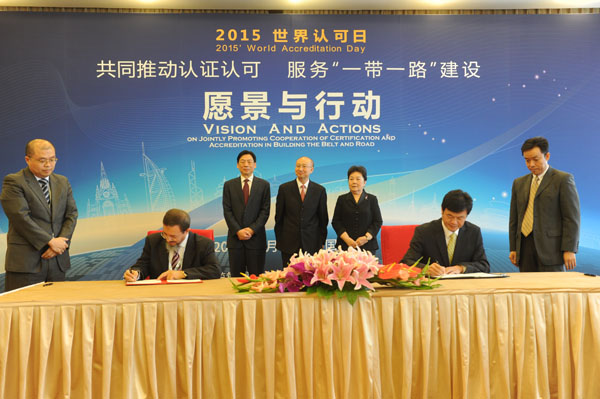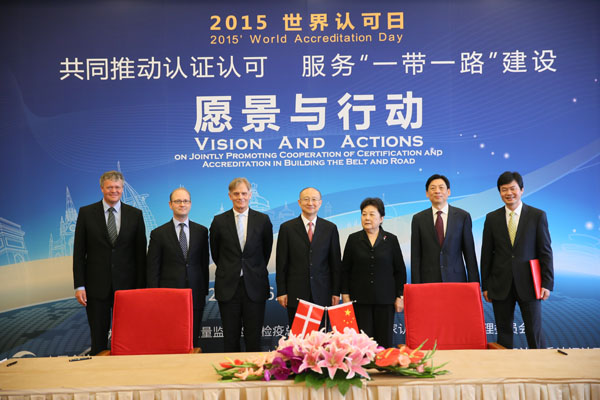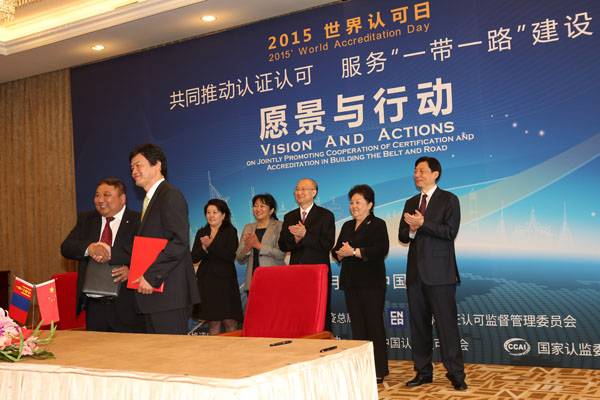News Center |
CNAS Signs Agreements with Nine Economiesrelease date:2015-12-30 origin:China National Accreditation Service for Conformity Assessment viewed:330 times
On celebrating 2015 World Accreditation Day and the launching ceremony of “Vision and Actions on Jointly Promoting Cooperation of Certification and Accreditation in Building Silk Road Economic Belt and 21st Century Maritime Silk Road”, China National Accreditation Service for Conformity Assessment (CNAS) signs the bilateral agreements respectively with the GCC Accreditation Center (GAS), Danish Accreditation (DANAK) and Mongolian Agency for Standardization and Metrology (MASM). As the significant target economies for exporting product and engineer technology service, GCC region (including Saudi Arabia, United Arab Emirates, Oman, Bahrain, Qatar, Kuwait and Yemen), Denmark and Mongolia are also defined as the major importing economies for the resource. The signed bilateral agreement facilitates the systematic long-term mechanism between our China and the above-mentioned economies in relation to the accredited bilateral cooperation, which further pushes the accreditation technology exchange and cooperation between both sides in the fields of testing, inspection and certification and also lays a foundation for adoption of the accreditation results and accredited testing, inspection and certification results on the basis of multilateralism and mutual recognition. The signed bilateral agreements are regarded as a significant result on the 8th World Accreditation Day. CNAS now has signed the bilateral agreements respectively with America, Britain, German, France, Netherlands, Japan, Korea, Uzbekistan, Greece and Indonesia. CNAS also signed the bilateral agreement with the accreditation bodies covering nine economies to further expand and strengthen the cooperation network between CNAS and the economies along the Silk Road Economic Belt; for that reason, accreditation fully plays an positive role in building Silk Road Economic Belt Initiative, reduction of technical barriers to trade and guarantee of good operation environment and trade liberalization, which also provides technical support for promoting connectivity along the economies along the Silk Road Economic Belt.
|

 Industry News
Industry News





